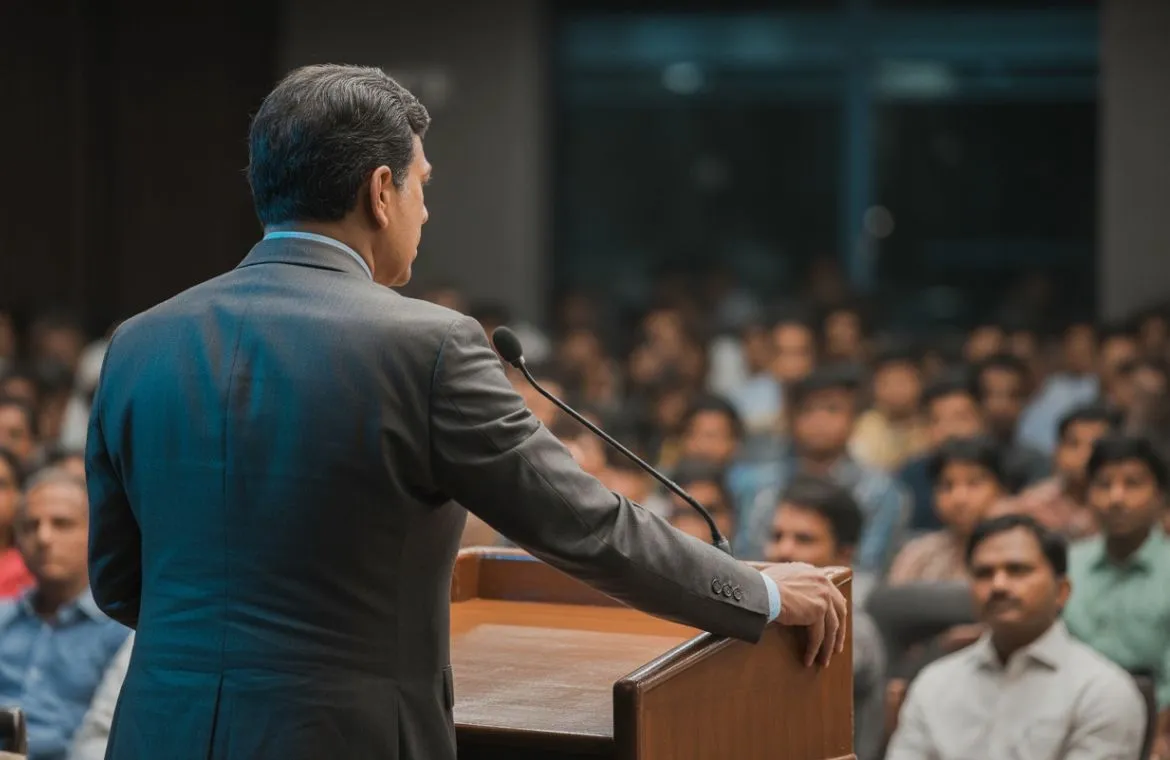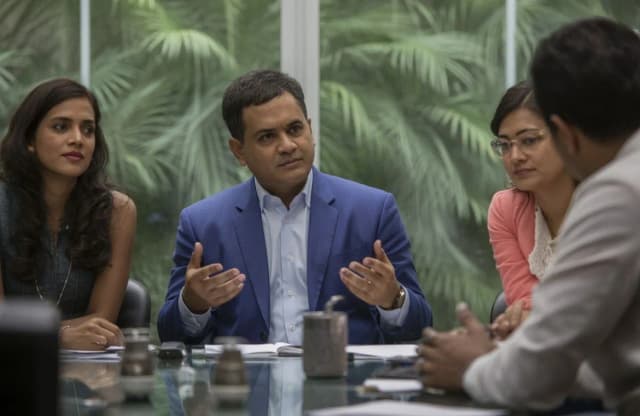Leadership Lessons from Top Business Leaders

Strong leadership is now essential for business success. Workplaces are changing quickly, and leaders can no longer rely on old command-and-control styles. Today’s best leaders listen actively, make flexible decisions, communicate clearly, and lead with empathy and integrity. Many CEOs also act as “stress absorbers,” helping teams stay calm and focused during uncertainty.
With rapid technology shifts, global challenges, and rising employee expectations, lessons from top business leaders are more important than ever. Their experiences show what modern leadership really requires: a clear purpose, ethical decision-making, adaptability, and strong strategic vision.
These insights are not just inspiring; they offer practical guidance for leaders today. Let’s explore the leadership lessons from some of the world’s top business leaders.
Leadership Lessons from Top Global Leaders
Global business titans provide actionable strategies that work in practice, not just theory. Their proven approaches offer concrete methods for navigating complex business environments with measurable results.
Satya Nadella: Creating Clarity Through Transformation
Microsoft CEO since 2014
Nadella's three core leadership attributes deliver consistent results: creating clarity amid ambiguity, generating energy across teams, and achieving success despite constraints. His approach transformed Microsoft's internal culture from competition to collaboration.
Key insight: "Empathy is the most complex skill to learn," requiring consistent effort and self-awareness. This philosophy shifted Microsoft's entire cultural framework whilst maintaining innovation leadership.
Indra Nooyi: Performance with Purpose Strategy
Former PepsiCo CEO
Nooyi pioneered connecting revenue goals with societal impact through her "Performance with Purpose" framework. Under her leadership, PepsiCo achieved 80% net revenue growth while pursuing sustainability initiatives.
Strategic approach: Made sustainability everyone's responsibility, not just a designated officer's role. "I wanted everybody to understand the fundamentals" of environmental issues.
This approach is supported by the Gallup’s Employee Engagement Survey, which recorded that highly engaged businesses experience 78% less absenteeism and 14% more productivity.
Ratan Tata: Ethics-Driven Business Excellence
Tata Group Chairman (1991-2012)
Tata demonstrated unwavering commitment to ethics throughout his tenure, extending leadership principles into philanthropy through Tata Trusts. His approach prioritised respect and collaboration over hierarchical control.
Leadership principle: "Leadership is not about being autocratic; it's about being humble and communicative." This philosophy built lasting organisational strength across the Tata Group's diverse business portfolio.
Sundar Pichai: Composure Under Pressure
Google and Alphabet CEO
Pichai maintains remarkable composure during challenging situations whilst emphasising inclusivity and adaptability. His leadership style focuses on open communication structures that engage employees at all levels.
Practical application: Regular "town hall" meetings where employees voice concerns and share ideas, creating transparent communication channels across the organisation.
N. R. Narayana Murthy: Compassionate Capitalism
Infosys Co-founder
Murthy's founding principles centred on equal treatment across all organisational levels. His "compassionate capitalism" philosophy prioritises employee welfare, particularly for lower-level staff, before executive compensation.
Core philosophy: "The leader of a corporation must consider his or her compensation only after making sure that the lowest-level employee has received his or her share." This approach-built Infosys's reputation for ethical business practices.
Leadership Lessons from Indian Business Icons
Indian business leaders master uniquely complex market dynamics while building global enterprises. Their proven methodologies provide actionable insights for professionals seeking world-class leadership capabilities.
Mukesh Ambani: Visionary Thinking and Scale Execution
Ambani builds success through clear goal setting and teams that share his strategic vision. His leadership operates on two core principles: focus on goals rather than obstacles and understand first principles for both organisational strategy and individual business units. Risk assessment begins with worst-case scenario identification before major decisions, a methodology proven during Jio's market launch.
This systematic approach to vision execution demonstrates how leaders can scale ambitious projects through disciplined strategic thinking and comprehensive risk management.
Anand Mahindra: Relationship-Led Leadership and Storytelling
Mahindra's leadership philosophy centres on empowering others and building high-performance teams through authentic empathy. His approach creates workplace communities where employees feel their perspectives carry weight and influence. Research validates this methodology, teams operating through relationship-focused frameworks consistently outperform those structured around traditional power hierarchies.
Storytelling becomes a strategic tool for Mahindra, enabling him to communicate complex business concepts and inspire collective action across diverse teams.
Kiran Mazumdar-Shaw: Resilience and Innovation in Adversity
Mazumdar-Shaw transformed a garage startup in 1978 into India's premier biotechnology enterprise through systematic resilience and calculated innovation. Her leadership framework emphasises problem-solving capability development: "If you give a problem to an ordinary person that they can crack...they become more confident". This approach converts standard employees into exceptional performers through structured challenge management.
Her methodology proves that consistent innovation under constraint builds both individual capabilities and organisational strength.
Harsh Mariwala: Empowering Teams and Decentralised Leadership
Mariwala restructured Marico through decentralised decision-making architectures. His operational model empowers teams to function as independent business entities. Studies confirm that flatter organisational structures enable more effective transitions to digital service delivery.
This decentralisation strategy demonstrates how modern leaders can scale operations whilst maintaining agility and responsiveness across diverse market segments.
How to Practically Apply These Lessons
Outstanding leaders translate insights into daily action. These proven strategies create measurable impact across organisations, from individual interactions to company-wide culture transformation.
Leading with empathy in daily interactions
Empathetic leadership requires understanding others' needs and recognising their thoughts and feelings. Watch for burnout signals, show genuine interest in team members' aspirations, and offer support for personal challenges. Master active listening skills and practice perspective-taking to develop this capability.
Making transparent and timely decisions
Share information openly and honestly to demonstrate trust in your teams. This creates environments where communication flows freely in all directions. Communicate decision-making processes clearly, explain who makes decisions and how, to prevent disengagement and build credibility.
Strategic delegation to build trust and ownership
Effective delegation transfers responsibility alongside resources, direction, and support. Identify tasks suitable for delegation, match them to employees' skills and development objectives, then establish clear communication channels and provide necessary authority.
Building a strong and inclusive team culture
Create workplace cultures that value employees from all backgrounds. This increases creativity and innovation whilst enabling people to contribute ideas freely. Provide safe communication spaces through surveys and discussion groups. Recognise colleagues for their strengths to foster collaboration over competition.
Practising responsible and ethical leadership
Make decisions for the common good, not just profit margins. Most of the employees in the organization are either Gen Z or millennials, who demand stronger leadership ethics than previous generations. Companies with ethical leadership enjoy engaged, motivated employees who feel positive about their workplace.
Ready to develop these leadership capabilities systematically? Advanced executive programmes provide structured pathways to master these essential skills and create lasting organisational impact.
(Related Read: How to be a Great Leader at Work)
Conclusion
Leadership excellence demands both strategic vision and practical execution in today's fast-moving business environment. This examination of world-class business leaders reveals consistent patterns that separate exceptional leaders from the rest.
Emotional intelligence emerges as the most critical capability. Satya Nadella proves empathy drives both strategic advantage and cultural transformation. Indra Nooyi's people-first approach creates sustainable growth whilst building deeper organisational commitment. These leaders show that human connection directly impacts business results.
Adaptability remains equally vital. The best leaders stay flexible while holding firm to core values. Ratan Tata demonstrates how value-driven leadership creates lasting impact beyond quarterly performance. Sundar Pichai shows calm decision-making under pressure builds organisational resilience.
Visionary thinking paired with disciplined execution transforms ambitious goals into reality. Mukesh Ambani and Azim Premji prove strategic focus and social responsibility work as complementary strengths, not competing priorities. Their approaches show how great leaders balance profit with purpose.
If you want to strengthen your leadership capability and build the mindset needed for responsible, future-ready leadership, explore ours leadership programs.
Frequently Asked Questions
Q1. What are the key qualities of effective modern business leaders?
Effective modern business leaders demonstrate emotional intelligence, adaptability, and human-centric approaches. They prioritise empathy, transparent decision-making, and building inclusive team cultures while maintaining ethical standards and a long-term vision.
Q2. How has leadership evolved in recent years?
Leadership has shifted from traditional command-and-control models to more collaborative, people-focused approaches. Today's leaders emphasise emotional intelligence, adaptability, and fostering innovation while navigating rapidly changing business environments.
Q3. What leadership lessons can be learned from global business icons?
Global business icons teach us the importance of leading with empathy (Satya Nadella), thinking long-term (Indra Nooyi), maintaining humility (Ratan Tata), staying calm under pressure (Sundar Pichai), and building strong organisational cultures (N. R. Narayana Murthy).
Q4. How can leaders practically apply leadership lessons in their daily work?
Leaders can apply these lessons by practising empathy in daily interactions, making transparent and timely decisions, delegating strategically to build trust, fostering an inclusive team culture, and consistently demonstrating ethical leadership in all actions.
Q5. Why is emotional intelligence crucial for modern leadership?
Emotional intelligence is crucial because it enables leaders to better understand and manage their own emotions and those of their team members. This skill leads to improved communication, stronger relationships, and higher overall performance in today's complex business environment.

TalentSprint
TalentSprint is a leading deep-tech education company. It partners with esteemed academic institutions and global corporations to offer advanced learning programs in deep-tech, management, and emerging technologies. Known for its high-impact programs co-created with think tanks and experts, TalentSprint blends academic expertise with practical industry experience.



